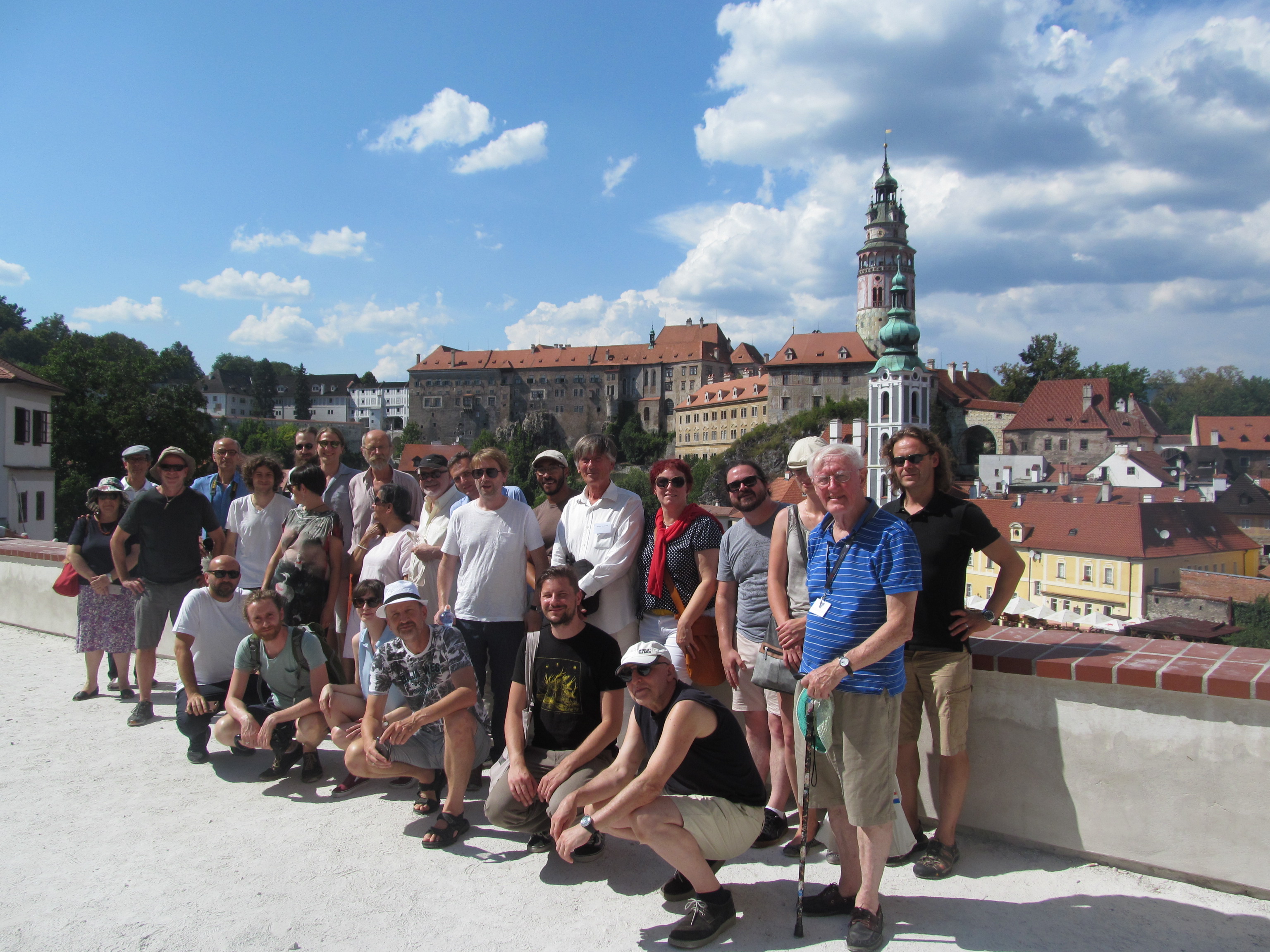A lively and enlightening conference and Summer School on process philosophy came to a close in early August, 2018. Despite the fact that the Summer School was sponsored by the Faculty of Art, South Bohemian University and co-organised by the European Society for Process Thought, the conference was far from being exclusively a Eurocentric exercise.
It was richly multicultural, with presenters from varied backgrounds. It included Whitehead scholars and research students from the UK, Germany, the US, India, Poland and Ukraine, African-American scholars and more. Another significant feature of this Summer School was that although the process philosophy of A.N. Whitehead and his successors was an important focus, many of the presenters delved into related areas of processual interests including Buddhist studies, the philosophy of Henri Bergson, and John Dewey.

Thus, the Summer School was not exclusively Whitehead-centric, though Alfred North Whitehead’s process philosophy was the pivot. The process aesthetics proved to be an excellent starting point for examining different philosophical themes. The following is a thematic arrangement, linking each presentation to process aesthetics. It is significant that, when it comes to process philosophy and process aesthetics, there are no water-tight divisions. Many of the papers, therefore, belong to different thematic groups. Here are the basic ones: Process Aesthetics and John Dewey (Hans Alma, Emily Hertz); Process Aesthetics and Literature (Veronika Geyerová); Process Aesthetics and Possibility (Alexander Haitos); Process Aesthetics and Ontology (Michael Halewood, Martin Kaplický, David Kempf, Maria Teresa Teixeira); Process Aesthetics and Logic (Michael Heather, David Adrian Barteczko); Process Aesthetics and John Ruskin (J. Thomas Howe); Process Aesthetics and Non-Human Communication (Alexandra Kimbo); Process Aesthetics and Other Traditions (Raj Ayyar, Dagmar Dotting, Christian Thomas Kohl); Process Aesthetics and Religion (Piotr Lesniak, Raj Ayyar); Process Aesthetics and Music (Helmut Maassen, Lennart Posch, Roland Ring); Process Aesthetics and Racial Discrimination (Michael L. Thomas); Process Aesthetics and Phenomenology (Michel Weber); Process Aesthetics and Personhood (Sinan von Stietencron); Process Aesthetics and ‘Crealectics’(Luis de Miranda); Process Aesthetics and Bergson on Humor (Milos Ševčík).
This clearly illustrates the thematic richness of the papers; in addition, there was the atmosphere of personal and intellectual enrichment that accompanied all papers and events of the conference.
Raj Ayyar
 European Society for Process Thought
European Society for Process Thought